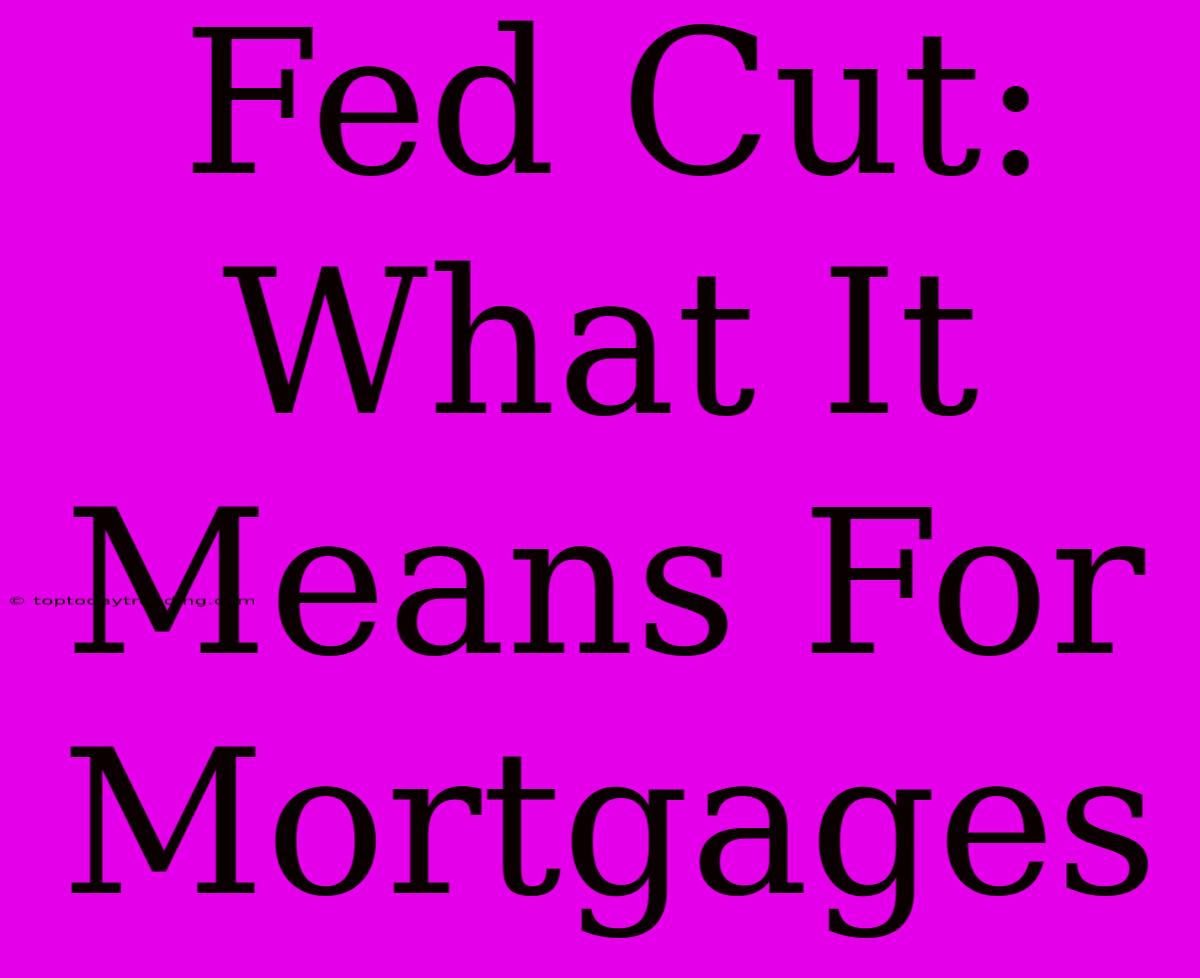Fed Cut: What It Means For Mortgages
The Federal Reserve, the central bank of the United States, plays a crucial role in shaping the economy, including the housing market. One of the most significant tools the Fed uses to influence economic activity is adjusting interest rates.
When the Fed cuts interest rates, it can have a significant impact on mortgage rates, potentially leading to lower borrowing costs for homebuyers and refinancing opportunities. This article will delve into how a Fed cut affects mortgages, exploring the potential benefits and drawbacks for borrowers.
Understanding The Fed Cut:
The Fed's interest rate decisions are made by the Federal Open Market Committee (FOMC), which meets regularly to assess the current economic conditions and determine appropriate monetary policy actions. When the Fed cuts interest rates, it essentially makes it cheaper for banks to borrow money. This reduction in borrowing costs for banks can then lead to lower interest rates on loans, including mortgages.
Impact On Mortgages:
Lower Mortgage Rates: A Fed cut can lead to lower mortgage rates. This is because banks often adjust their mortgage rates based on the Fed's benchmark interest rates. With lower borrowing costs, they can offer more competitive rates to borrowers.
More Affordable Housing: Lower mortgage rates mean that homebuyers can afford to borrow more money at a lower monthly cost. This increased affordability can stimulate demand in the housing market, potentially leading to increased home sales and price appreciation.
Refinancing Opportunities: Borrowers with existing mortgages may find it beneficial to refinance their loans to take advantage of lower interest rates. This can save them money on their monthly payments and potentially reduce their overall mortgage costs.
Potential Drawbacks:
Inflation: While Fed cuts can stimulate the economy, they can also lead to inflation. Lower interest rates can encourage more borrowing and spending, potentially putting upward pressure on prices.
Riskier Lending: Lower interest rates can lead to looser lending standards, making it easier for borrowers with lower credit scores to qualify for mortgages. This can increase the risk of defaults and potential instability in the housing market.
Limited Impact: The impact of a Fed cut on mortgage rates can vary depending on market conditions and other economic factors. Other factors, such as investor sentiment and the overall demand for mortgage loans, can influence interest rates independently of the Fed's actions.
Conclusion:
A Fed cut can have both positive and negative implications for mortgages. While it can lead to lower interest rates, increased affordability, and refinancing opportunities, it can also contribute to inflation and potentially lead to riskier lending practices. It is important for borrowers to carefully consider their individual financial circumstances and weigh the potential benefits and drawbacks before making any decisions related to mortgages.

